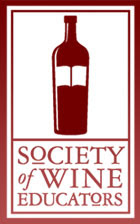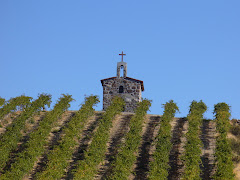 Kosher Wine, I must admit, is something I am always skiddish in stocking in my stores – not because I look down at Kosher Wine, but because it’s just so damn hard to get here in Kentucky. It can be a frustrating thing to get the distributors to look past the Manischewitz, but every once in awhile, we get lucky. So for this Wine Blogging Wednesday, I actually get the chance to talk about a Kosher Wine, not from Israel, but further south, the Backsberg Kosher Pinotage 2007 from the Paarl region in South Africa.
Kosher Wine, I must admit, is something I am always skiddish in stocking in my stores – not because I look down at Kosher Wine, but because it’s just so damn hard to get here in Kentucky. It can be a frustrating thing to get the distributors to look past the Manischewitz, but every once in awhile, we get lucky. So for this Wine Blogging Wednesday, I actually get the chance to talk about a Kosher Wine, not from Israel, but further south, the Backsberg Kosher Pinotage 2007 from the Paarl region in South Africa.Pinotage, for those of you who don’t know, is South Africa’s creation, a cross between the Pinot Noir grape, and a grape South Africans for a long time referred to as Hermitage, which most of us know as Cinsault. This much-polarizing grape is a “love-em-or-hate-em” kind of grape variety that usually demonstrates loads of dark black and blue fruit flavors, some robust herbs and spices, and that ever-present “earthy” funk that is often known as “terroir.” There is smoke, petrol, and oily minerality represented well in most Pinotage wines, and the Backsberg is no exception. I like this particular one, because it possesses a bit of boysenberry and loganberry fruit, and tends to be more fruit-driven than “terroir-driven.”
Yet here is the rub – it’s Kosher, Mevushal for those really paying attention. What does that mean? Well, to be labeled Kosher, the wine has to be made from beginning to end, in observance of Jewish dietary laws (known as kashrut). The wine must be made at all times, in the presence of a Sabbath-observant Jew, preferably a rabbi. Any ingredients used, including yeasts and fining agents, must be kosher. Egg whites can be used, but they would not be used for Vegan Kosher Wine. If they are deemed Kosher for Passover, the wines must be kept away from any grain, bread or dough.
Mevushal is a term applied to Kosher wines that can maintain kosher status, even in the presence of non-Jewish people (in researching the definition, many used the word “idolater”). These wines tend to be flash pasteurized, also known as “High Temperature Short Time,” is a method of pasteurizing perishable beverages such as wine without destroying the flavor or color of the wine. Even this process must be overseen by the mashgichim (an orthodox rabbi appointed to oversee kashrut law.
The complexities of making wine are incredible. Yet what it takes to make Kosher wine is even more incredible. Yet the trick, if you want to discover what Kosher wine is all about, is to find a Kosher wine, that is simply a well-made, flavorful wine. Backsberg accomplishes this. And hopefully, you’ll go out and discover a bottle soon.
Thanks to the Cork Dork for the great idea and Lenn at Wine Blogging Wednesday for continuing the exchange of ideas. Check out my blog roll to see some my fellow bloggers Kosher posts.











No comments:
Post a Comment